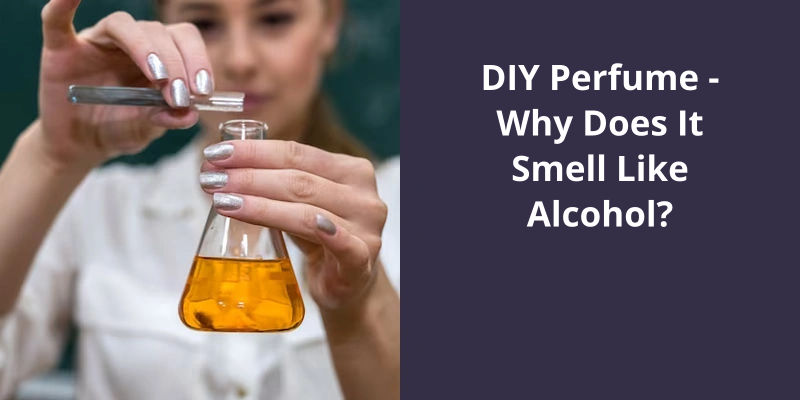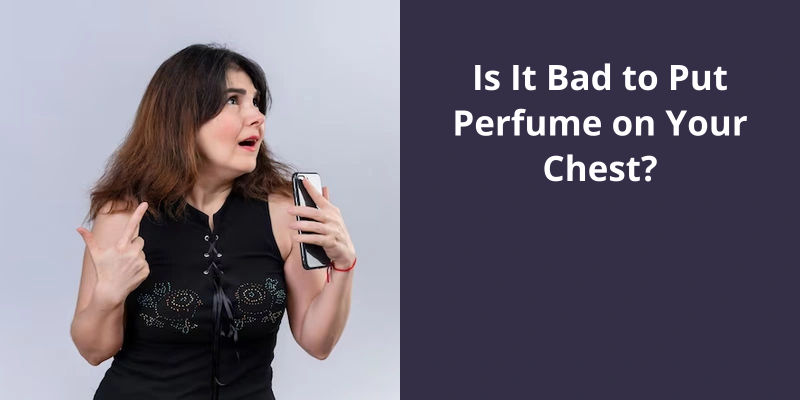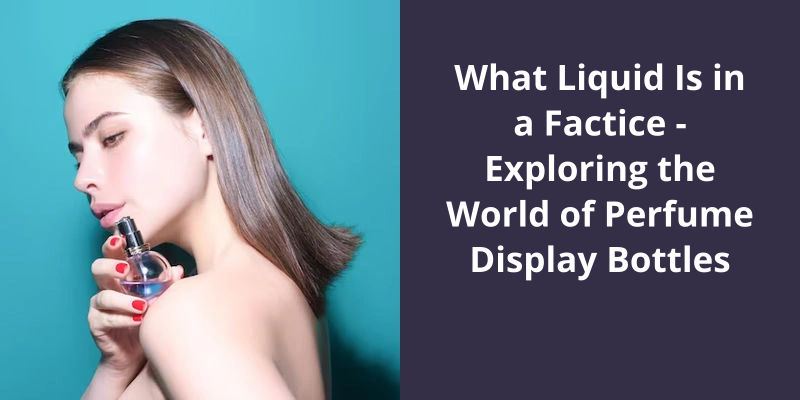Creating your own DIY perfume can be a fulfilling and fun project to undertake. You’d typically start with an alcohol base, like vodka, and then add your desired essential oils. However, if your DIY perfume smells predominantly of alcohol, it’s likely because the alcohol concentration is too high, or the essential oils used were not enough, or the perfume has not been allowed to age. Adequate aging, usually for a couple of weeks, is necessary as it allows the scent of the alcohol to dissipate and the fragrance from the essential oils to become more pronounced. Thus, by adjusting your alcohol to essential oil ratio, and allowing your perfume to age properly, you should be able to make a lovely DIY perfume that doesn’t smell overwhelmingly like alcohol.

Can You Use Regular Alcohol to Make Perfume?
Another reason why high-proof ethanol is preferred is that it evaporates quickly, leaving behind the fragrance on the skin. The fragrances are either essential oils or synthetic oils that are added to the alcohol. Essential oils are the concentrated extracts of plants, whereas synthetic oils are created artificially in a lab. Both types of oils can be used to make perfume.
It’s important to note that regular rubbing alcohol shouldn’t be used in perfume making. These additives can affect the smell and texture of the final product and may even be harmful to skin if used in high concentrations.
When making perfume, the alcohol is combined with the fragrance oils in a specific ratio to create the desired scent. This ratio can vary depending on the strength of the fragrance oils and the intended result. Some perfumers may also add other ingredients, such as water or glycerin, to the mixture to help enhance and prolong the scent.
Once the alcohol and fragrance oils are mixed, the perfume must be left to mature for a certain period of time. This is known as “aging” and can take anywhere from a few days to several weeks. During this time, the scent will blend and mellow, creating a more well-rounded fragrance. After aging, the perfume is bottled and ready to be sold or used.
Different Types of Alcohol That Can Be Used in Perfume Making
Alcohol is a commonly used ingredient in perfume making, but there are different types of alcohol that can be used. These include ethanol, isopropyl alcohol, and denatured alcohol. Each type of alcohol can affect the fragrance, longevity, and overall quality of the perfume. Ethanol is the most commonly used alcohol, as it’s considered the safest and most effective for fragrance preservation. Isopropyl alcohol can be used in small quantities, but too much can damage the scent. Denatured alcohol is often used in commercial perfumes, but it can contain harsh chemicals that may be irritants.
While alcohol-based perfumes have been a popular choice for many years, there are several negative effects that come with using them on a regular basis. From skin irritation to the breakdown of your natural skin barrier, these perfumes can cause more harm than good. So, what’re the disadvantages of using an alcohol-based perfume, and what’re some alternative options that you can consider? Let’s take a closer look.
What Are the Disadvantages of Alcohol Based Perfume?
Additionally, using alcohol-based perfume can also cause harm to the environment. The production of fragrances requires a large amount of natural resources, including water and plants. The use of alcohol as a solvent in perfumes contributes to air pollution and the depletion of ozone. Furthermore, the waste created from perfume bottles contributes to the already massive problem of plastic pollution.
Alcohol-based perfumes may also have negative effects on people with respiratory problems such as asthma. The fumes released when a perfume is sprayed can trigger breathing difficulties, leading to serious health problems. For people with sensitive skin or respiratory problems, alcohol-free options may be a better choice.
Another disadvantage of alcohol-based perfumes is that their scent tends to fade quickly. The alcohol in the perfume evaporates rapidly, leaving behind only a faint trace of fragrance. This means that one may have to reapply the perfume throughout the day in order to maintain the desired scent, which can be inconvenient and time-consuming.
In addition to all these, choosing an alcohol-based perfume can also be ethically problematic. Many popular perfume brands use animal-derived ingredients such as musk, civet, and ambergris, which are obtained through cruel and inhumane practices. Using such perfumes directly supports animal cruelty, which can make some people uncomfortable morally.
These include skin irritation, environmental harm, negative effects on respiratory health, short-lived fragrance, and ethical concerns. In order to avoid these issues, it may be worthwhile to explore alternative types of perfume or choose alcohol-free and cruelty-free options.
Conclusion
While some may be hesitant to use perfumer's alcohol and vinegar in their perfume, it’s important to note that these ingredients are necessary for creating a long-lasting and high-quality fragrance. By adding a few drops of fruity or citrus oils and distilled water, you can achieve a unique scent that’s both refreshing and elegant. With a little bit of patience and experimentation, anyone can create a personalized perfume that’s sure to turn heads and leave a lasting impression.





